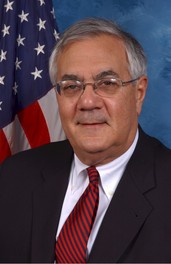






Barney Frank and John Campbell Introduce New Online Poker BillNew Bill Very Similar To HR 2267 |
|
|

Rep. Barney Frank
On Thursday, Congressmen Barney Frank (D-MA) and John Campbell (R-CA) proved that the fight will continue by introducing the Internet Gambling Regulation, Consumer Protection, and Enforcement Act.
If enacted, the new bill will set up a federally licensed and regulated framework for online gambling and would introduce safeguards to stop minors from gaining access to the gaming sites. There is also language in the bill to suggest provisions that will combat cheating and fraud, as well as protect against money laundering and tax evasion.
The bill bears a close resemblance to HR 2267, another of Frank’s bills that was passed out of the Financial Services Committee last year but failed to move further. To become law, the new bill will need bipartisan support in both houses of Congress.
Frank served as Chairman of the House Financial Services Committee until January, when the Republicans gained control of the House of Representatives. He is now their Ranking Member, while the Democrats retain control over the Senate.
While the Poker Players Alliance (PPA) supports the efforts being made to bring regulated intra-state poker to places such as New Jersey, Florida, California and Nevada, it is clear that regulation at the federal level is preferred.
PPA Chairman Alfonse D’Amato echoed those thoughts in a statement. “The great American game of poker has long been ingrained in our country’s proud history and, as with so many other facets of life, has migrated in the technological age to an online format,” he said. “Given that millions of Americans currently play online poker, states across the country are recognizing the value in licensing and regulating the game and many are introducing their own laws to allow for residents to play in a safe, regulated market while collecting millions in tax revenue. However, instead of a patchwork of state laws limiting the pool of players against whom residents can play and serving to only protect the Americans in those states, the time is now for Congress to step up and pass federal legislation.”
